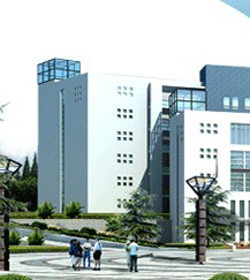2016年6月英语四级考试:仔细阅读练习(15)
2016-06-02 03:55:35pm
I don’t ever want to talk about being a woman scientist again. There was a time in my life when people asked constantly for stories about what it’s like to work in a field dominated by men. I was never very good at telling those stories because truthfully I never found them interesting. What I do find interesting is the origin of the universe, the shape of space-time and the nature of black holes.
At 19, when I began studying astrophysics, it did not bother me in the least to be the only woman in the classroom. But while earning my Ph.D. at MIT and then as a post-doctor doing space research, the issue started to bother me. My every achievement—jobs, research papers, awards—was viewed through the lens of gender (性别) politics. So were my failures. Sometimes, when I was pushed into an argument on left brain versus (相对于) right brain, or nature versus nurture (培育), I would instantly fight fiercely on my behalf and all womankind.
Then one day a few years ago, out of my mouth came a sentence that would eventually become my reply to any and all provocations: I don’t talk about that anymore. It took me 10 years to get back the confidence I had at 19 and to realize that I didn’t want to deal with gender issues. Why should curing sexism be yet another terrible burden on every female scientist? After all, I don’t study sociology or political theory.
Today I research and teach at Barnard, a women’s college in New York City. Recently, someone asked me how may of the 45 students in my class were women. You cannot imagine my satisfaction at being able to answer, 45. I know some of my students worry how they will manage their scientific research and a desire for children. And I don’t dismiss those concerns. Still, I don’t tell them war stories. Instead, I have given them this: the visual of their physics professor heavily pregnant doing physics experiments. And in turn they have given me the image of 45 women driven by a love of science. And that’s a sight worth talking about.
62. Why doesn’t the author want to talk about being a woman scientist again?
A) She feels unhappy working in male-dominated fields.
B) She is fed up with the issue of gender discrimination.
C) She is not good at telling stories of the kind.
D) She finds space research more important.
63. From Paragraph 2, we can infer that people would attribute the author’s failures to ________.
A) the very fact that she is a woman
B) her involvement in gender politics
C) her over-confidence as a female astrophysicist
D) the burden she bears in a male-dominated society
64. What did the author constantly fight against while doing her Ph.D. and post-doctoral research?
A) Lack of confidence in succeeding in space science.
B) Unfair accusations from both inside and outside her circle.
C) People’s stereotyped attitude toward female scientists.
D) Widespread misconceptions about nature and nurtured.
65. Why does the author feel great satisfaction when talking about her class?
A) Female students no longer have to bother about gender issues.
B) Her students’ performance has brought back her confidence.
C) Her female students can do just as well as male students.
D) More female students are pursuing science than before.
66. What does the image the author presents to her students suggest?
A) Women students needn’t have the concerns of her generation.
B) Women have more barriers on their way to academic success.
C) Women can balance a career in science and having a family.
D) Women now have fewer problems pursuing a science career.
参考答案:
62. D 63. A 64. C 65.D 66. C
以上就是查字典大学网为同学们带来的“2016年6月英语四级考试:仔细阅读练习(15)”内容了,希望看完能够带给大家一些力量,对同学的生活有所启示,更多内容在这里,请继续关注我们。
推荐文章
猜你喜欢
附近的人在看
推荐阅读
拓展阅读
院校推荐
猜你喜欢
2017国家公务员考试15日网上报名程序
2017年国考15日起报名 考试作弊者将永不录用
2017河北国考15日起报名涉邢岗位招录68人
2017国考15日启动报名 在湘职位601个共招729人
2017年国考部门代码查询
2017国考海事局招录900人 近八成职位应届生可报
2017国家公务员考试各省市招录人数一览表
2017国考报名指导:手把手教四项目人员选择国考职位
2017国考报名指导:手把手教应届生选择国考职位
2017年国考大纲解析
2017年国考报名热点问题解答
2017国家公务员考试报名总指导
2017国考报名首日12805人通过审核,诞生“人气双星”
2017国考今起报名 在湘职位601个共招729人
截止到15日16时:2017国考贵州报名310人
2017国考报名河南通过审核506人 最热职位13:1
2017国考报名天津158人过审 最热职位13:1
2017国考江西439人报名 最热职位22:1(截至15日16时)



